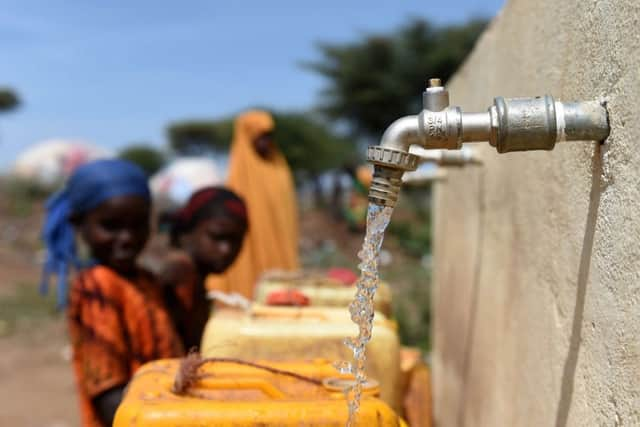£6m project promotes smart devices in search for safe drinking water


Nearly a quarter of the global population drink water that is not safe because of contamination that can cause deadly disease.
Ulster University is to lead a £6 million project to identify low-cost technologies which can help save lives.
Advertisement
Hide AdAdvertisement
Hide AdProfessor Tony Byrne said: “This is a very significant project which will play a critical role in helping to address one of the greatest global issues the developing world is facing today.
“Clean water saves lives and while we know how to make water safe to drink the cost of doing so may be too high as nearly half the world’s population live on less than £2 per day.”
The SAFEWATER research programme seeks to tackle a global challenge by looking at clean water solutions and the development of smart devices to quickly tell if water is safe to drink, Professor Byrne added.
The project will see Ulster University join forces with other partners across the globe to conduct the research.
Advertisement
Hide AdAdvertisement
Hide AdThis includes academics in South America and Non Governmental Organisations (NGOs) already working in Colombia and Mexico.
Professor Byrne added: “Through the NGOs, local people will be involved in the development of clean water solutions from the beginning of the project so the technologies will meet their needs.
“The project will make a real impact on the ground by bringing direct benefits to the lives of people living in developing countries.”
With man-made climate change reducing cities’ water supplies, countries have been increasingly investing in “desalination” technologies.
Advertisement
Hide AdAdvertisement
Hide AdThe UN has predicted that around 1.2 billion people, or 14% of the world’s population, will experience difficulties sourcing clean water by 2025.
Across East Africa 19.5 million people do not have a regular supply of safe drinking water.